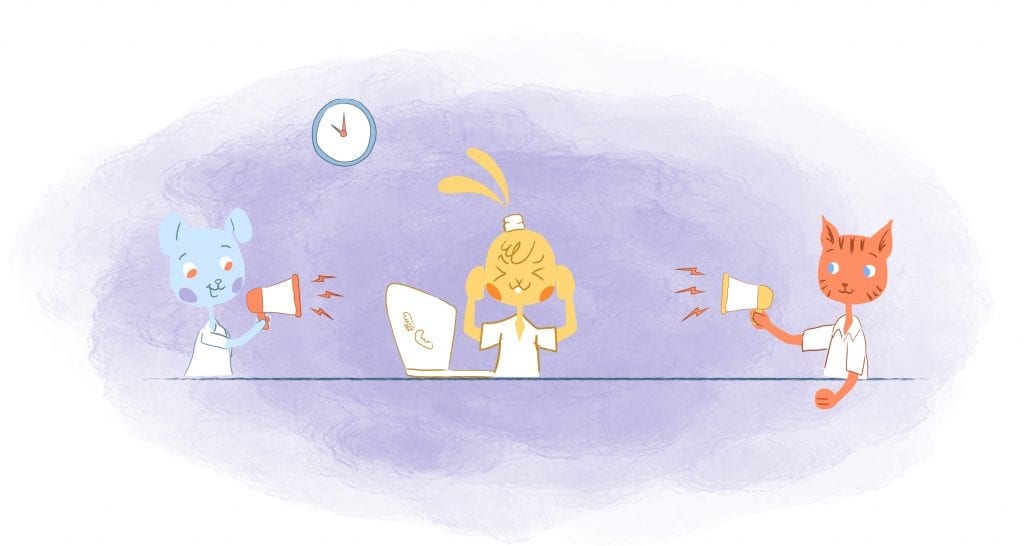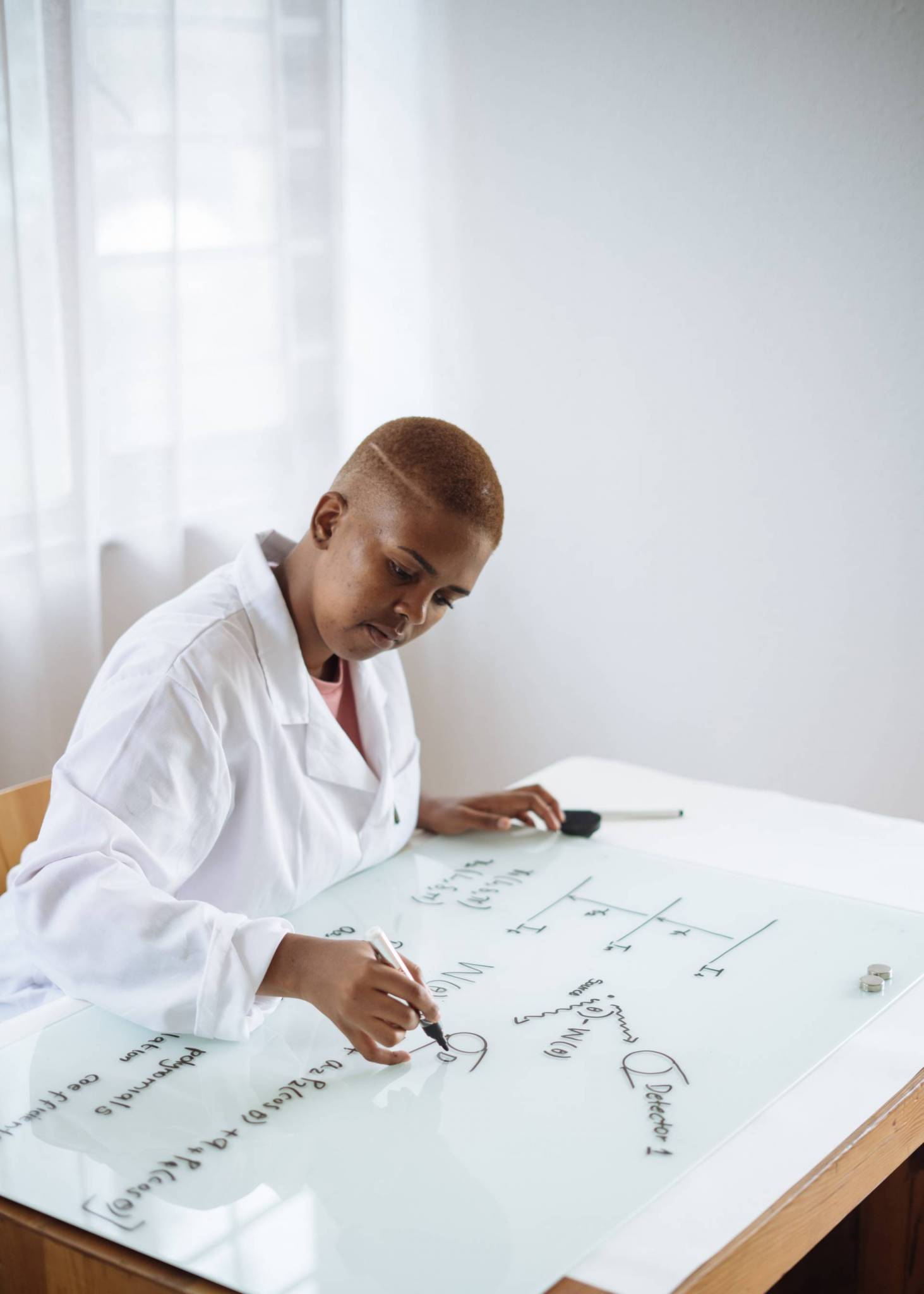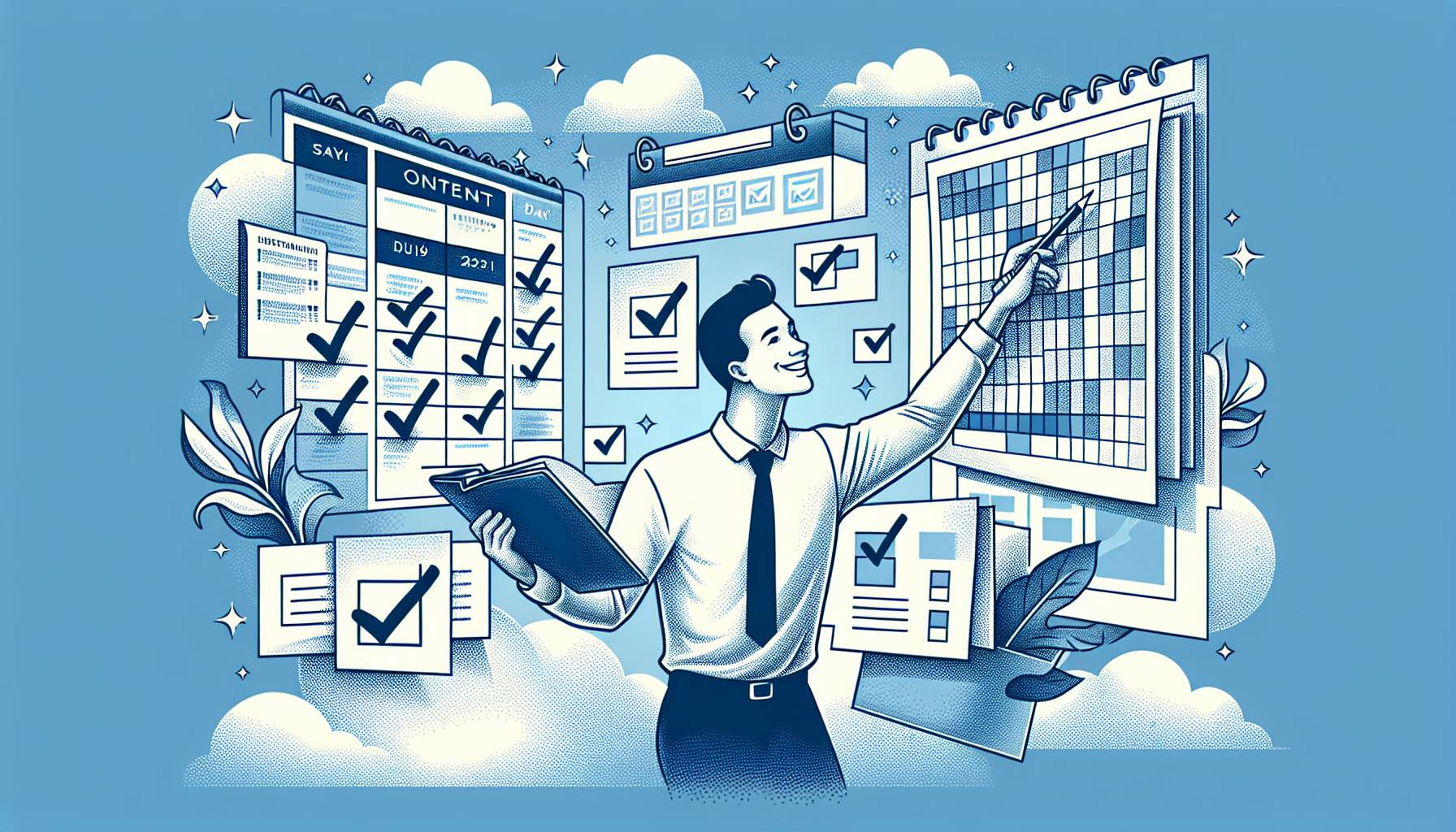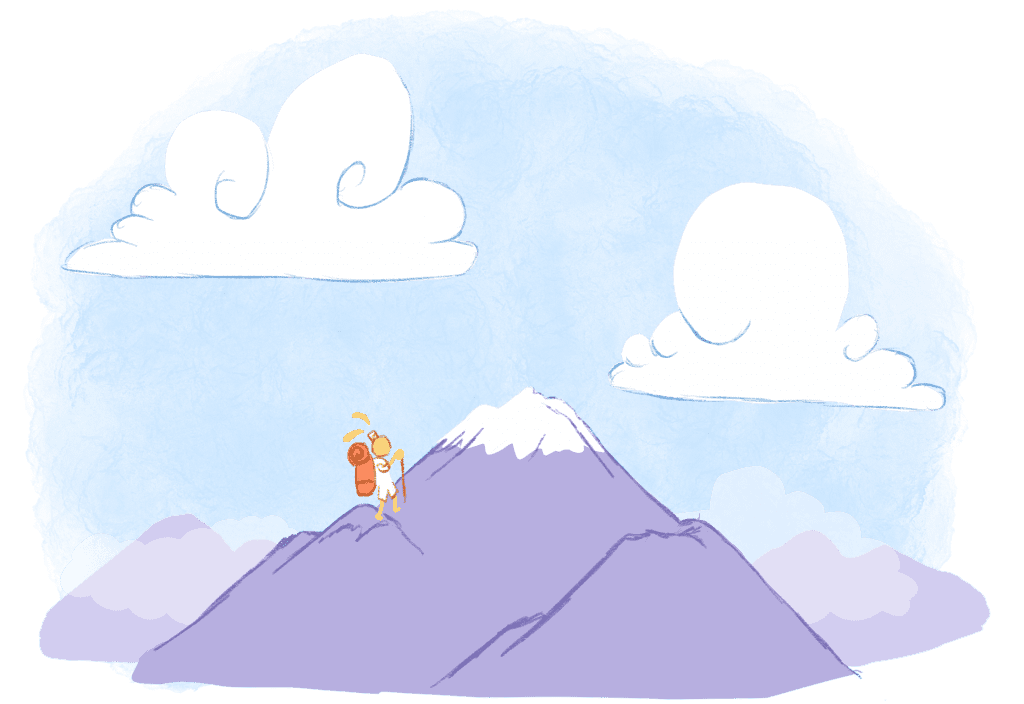

One rainy weekend, I decided to treat myself to a couple of episodes of “The Office.” I just needed an hour to relax and unwind. One of the things that always got me was how the Scranton branch stayed open — despite endless distractions.
While I understand you probably aren’t a leader like Michael Scott, the fact of the matter is that most workplaces are full of distractions that prevent us from being productive. If you can identify these distractions in the workplace, you can find ways to prevent them.
Nine of the biggest distractions in the workplace.
1. Smartphone notifications
On average, Americans check their phones every 12 minutes. That comes out to 80 times a day! No wonder in a 2016 CareerBuilder survey, smartphones were listed as the main productivity killer in the workplace. Between texts, social media and game notifications, it’s no wonder we’re addicted to our phones.
The easiest way to prevent smartphone distractions is by turning the phone off, putting it in airplane mode or using an app like SelfControl, Freedom or Anti-Social to block distracting apps. I even know people who leave their phone in a desk drawer or another room to avoid temptation.
2. The internet
According to Ofcom’s Adults’ Media User and Attitudes Report 2018, internet users spend an entire day each week online. Four in 10 U.K. adult internet users said they spend too much time online, while nearly a third said they wanted to spend less time online.
Here’s the problem: We’re expected to be online at work thanks to email, messaging apps and online platforms.
One solution is to block out certain times throughout the day to go online to check emails and messages. I do this first thing in morning and then during my afternoon slump following lunch. If willpower is a concern, use an app like StayFocusd or Strict Workflow. They limit your access to distracting websites for specific amounts of time. For example, you could block Slack for 90 minutes, allowing you to focus on more pressing matters without going off on tangents.
3. Gossiping and chatty co-workers
Interacting with your colleagues can be a good thing; it can build a friendly and collaborative atmosphere. However, constant drama, gossip and disrespect can create a toxic work environment. As Annie McKee writes in “How To Be Happy At Work,” these toxic conditions “result in fear, cynicism, lack of trust, anger and withholding of time, energy and talent, not to mention deep and pervasive unhappiness.”
Don’t encourage or partake in gossiping or bullying. Most importantly, however, look for ways to solve these issues. For example, if two team members have constant friction, seat them away from each other to minimize conflict.
What about those colleagues you get along with but you can never get away from because they’re always talking? Directly set boundaries. If they need help on a project, let them know you can discuss it with them when you’re done with your work. If they want to talk about the season finale of “Westworld,” ask if you can talk about it during a break.
You may even want to consider flexible schedules and remote options so you and your team can occasionally get away from co-workers who are noisy and interrupting.
4. Meetings
Bain & Co. has found that 15 percent of workers’ time is spent in meetings, while HR professionals spend more than a fifth of their day attending meetings. No wonder meetings are so disliked and infamous for being time wasters.
Thankfully, you can schedule meetings that don’t eat up as much time. Start by making sure the meeting is absolutely necessary. Sometimes you can skip that weekly status meeting and just have everyone provide updates via email, Slack or your project management tool.
If a meeting is necessary, invite only key stakeholders, have a clear purpose and agenda in advance and stick to a time limit. In other words, keep your meetings lean and mean so people can get back to what they were working on. You may also want to start implementing “no meeting” days.
5. Office politics
“While noise can certainly impact an employee’s ability to focus, what’s even more distracting is office politics. Simply put, favoritism and politics have no role in the workplace,” writes Andre Lavoie. “If certain staff members are trying to undermine others and gain favor, employees will lose their concentration. Plus, a dog-eat-dog mentality will be created and damage employee morale.”
To avoid this, stick to facts. For example, use performance metrics to identify your “A” players. This way, there’s no question who deserved praise or a promotion.
6. Hunger
It’s around noon, and you’re suddenly famished. All you can think about is how you’re going to demolish a cheeseburger.
You can’t just fill up on greasy food and go back to work — the food you eat can impact your productivity. That burger may have satisfied your hunger, but because it’s fatty, you’re going to get groggy. Now all you can think about is going into a food coma.
In order to satisfy your hunger while ensuring you don’t crash in the afternoon, “Best Place To Work” author Ron Friedman suggests deciding what you’re going to eat before you get hungry. If you wait until you’re hungry, you’ll have less self-control, meaning you’ll eat something unhealthy. Also, it prevents you from worrying about what you’re going to eat all morning. It helps to graze throughout the day to avoid peaks and valleys.
7. Clutter
This just makes sense: If you have a pile of unsorted paperwork, how can you expect to find your electric bill when you need it? What’s more, when working on something that’s challenging, our minds start to wander toward that clutter.
Clutter is actually an easy distraction to fix. Just straighten up your workspace, and make sure that everything goes back to where it belongs. This way, you won’t waste time looking for items when you need them, and your brain won’t have anything distracting to fixate on.
8. Multitasking
Multitasking doesn’t work. That’s because our minds weren’t meant to switch from one task to another. Instead of checking your emails while on the phone with a client, focus on one task at a time. Once that task is completed, move to the next.
While Michael Scott may have thrived on the chaos of endless distractions in the workplace, you and your team don’t have to. By cutting out these time wasters, you can build a team productive enough to make Andre proud.











Albert Costill
My name is Albert Costill and I'm a content marketer at Calendar. If I can help people become more productive in my journey, even better. If you ever have a question about your Calendar or how you can use it - - don't hesitate to reach out. I'm a Calendar Pro.